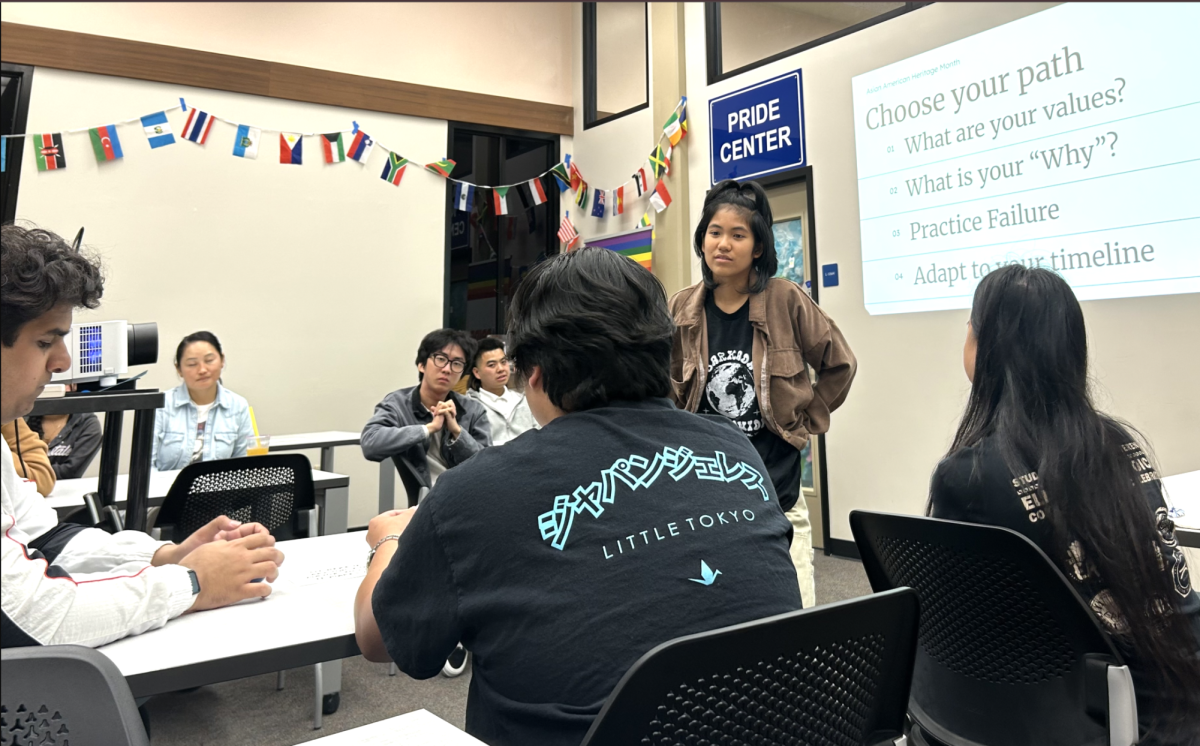Success isn’t one-size-fits-all, and during a workshop hosted by the APIDA Hawks Center, students explored what it means to define success on their own terms, beyond the expectations of their parents, on April 17 in the Center for Inclusion and Belonging.
Within the workshop, there was a presentation that had interactive slides for the students and staff who attended to not only share with the people at their table, but also with the whole group. One of the main points in the slide was finding and knowing what you want for yourself, because what your parents want for you is not always the right fit, said Biaghan Dela Cruz, a 23-year-old film major and speaker at the event.
“The goal was to have Asian students specifically choose something that they wanna do, ‘cause I was talking to counselors and they said the most common issue that students talk about is if they feel like they’re doing right by their parents, or if they can even choose something that they like, even if it might disappoint their parents,” Dela Cruz said.
She tried to come up with something addressing that what their parents want may not be for them, while also helping them realize that their parents had to deal with their own traumatic stuff as well, Dela Cruz said.
During the workshop, tables were set up with different scenarios and each person who attended was told to sit where they felt like was the most relatable scenario to them. For example one of the tables said, “Sit here if your parents are only okay if you go into a major that is high paying.”
There was then a series of questions asked by Dela Cruz, in which everyone was able to participate and see that they aren’t the only ones who are going through something. One question asked was, “Raise your hand if you feel like you can’t choose your own major.’’
“I learned a lot about the generational trauma and how specific actions that people take actually is because of what they went through,” said Athena Singh, a 19-year-old business major.
Dela Cruz also discussed neuroplasticity, which is how the brain’s network changes in response to growth or experience, and how to acknowledge and understand the emotions you are feeling. The slideshow showed a wheel where it contained emotions and how those emotions can lead to different emotions.
One thing Dela Cruz hoped the students who went realized was that they come from this place of history and of heritage and then realize they get to change what their future looks like.
“I think that coming from first generation immigrants, I kind of had to navigate my way through by learning from them and learning that they’re not perfect,” said Julia Nguyen, a 20-year-old journalism major. “And so it’s hard for them to understand where we’re coming from because they have such a different world view and perspective.”

